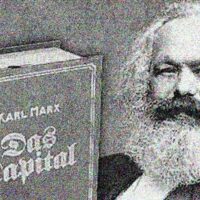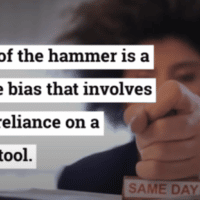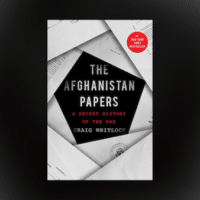-
The meaning of ‘So-called Primitive Accumulation’
A key concept in Karl Marx’s Capital is widely misunderstood.
-
A people’s history of Howard Zinn
On the hundred year anniversary of Howard Zinn’s birth, Sean Ledwith examines the life and work of America’s greatest radical historian.
-
Imperialism is the arsonist: Marxism’s contribution to ecological literatures and struggles
Marxism’s contributions to ecological literature and struggles is a rich and contradictory field of discussion. Marxism in diverse ways has fed into environmental struggles and broader ecological politics.
-
New film documents life of anti-war writer
Vonnegut, like the novel’s Billy Pilgrim, witnessed the effects of the Allied fire-bombing of Dresden in World War II—a massacre and a war crime. In the novel, Pilgrim mentally flees the terrible memories by fantasising about extraterrestrial time travel, but can’t stop his mind from straying back to the trauma.
-
Economics and the law of the hammer
As yours truly has reported repeatedly during the last couple of years, university students all over the world are increasingly beginning to question if the kind of economics they are taught–mainstream economics–really is of any value. Some have even started to question if economics is a science.
-
Glen Ford’s irreplaceable journalism
In the best sense of the word a journalist is someone who brings to the public sphere accurate, well sourced information, and rigorous analysis.
-
On the bicentennial of Shelley’s death: evolution of a working-class poet
Two hundred years ago, on July 8, 1822, the poet Percy Bysshe Shelley drowned. He was less than a month short of thirty.
-
China Miéville: “If you don’t feel despair, you’re not opening your eyes”
The fantasy novelist and left activist on why Marx’s ‘Communist Manifesto’ speaks to the crisis-ridden politics of the present.
-
Peter Schumann turns sketches into comics—and comics into street theater
Five o’clock in the morning is a “preferred time” for Peter Schumann to make comics, he said. Ideas can come from just about anywhere: the weather in the Northeast Kingdom, where he lives, or a piece in the Monthly Review, a long-running socialist publication. “I go by what’s happening in the world,” he said.
-
‘Karl Marx’s Writings on Alienation’ by: Marcello Musto, reviewed by: Carlos L. Garrido
Marcello Musto’s anthology of ‘Karl Marx’s Writings on Alienation’ is both comprehensive and concise, containing within the span of 100 pages the three decades long development of the theory through more than a dozen published works and posthumously published manuscripts.
-
100 million Russian books in line for ban
Oleksandra Koval, director of the Ukrainian Book Institute (part of the Ukrainian Ministry of Culture), has claimed that they will begin working towards withdrawing over 100 million so-called ‘propaganda’ books from public libraries in Ukraine.
-
Reading, writing, ‘rithmetic of rifles (for Uvalde and other schools…)
for Uvalde and other schools…
-
‘The Afghanistan Papers’ leaves a critical question unanswered
While Afghanistan may finally be free of outside military occupation, Afghans are still suffering the deadly consequences of 40 years of U.S.-led subversion and war.
-
Colin Kaepernick’s “I Color Myself Different”
Colin Kaepernick: The idea for “I Color Myself Different” had been circulating in my mind long before I put a pen to the page, in part, because the story is based on an actual moment from my childhood. When I was in kindergarten, I was given a seemingly straightforward assignment in school: “draw a picture of yourself and your family.”
-
Lenin’s ‘The State and Revolution’
The starting point for his argument was the class nature of the capitalist state. Drawing on the writings of Marx and Engels, Lenin demolishes the idea that the state is a neutral body standing above social classes. Instead, he argues that the state exists as a means for one class to maintain its dominance over another.
-
Ben Lewis on Kautsky, Democracy and Republicanism
Ben Lewis, the translator and editor of “Karl Kautsky on Democracy and Republicanism” talks with Green Left’s Barry Healy.
-
Andreas Malm & the Zetkin Collective – ‘White Skin, Black Fuel’
As regular readers of this blog will be aware I think that Andreas Malm, even where I disagree with key points of his argument, is one of the most stimulating Marxist authors on environmental politics.
-
Remembering Aijaz Ahmad
UCI Chancellor’s Professor of Comparative Literature Aijaz Ahmad passed away in his home in Irvine on March 9, 2022.
-
Dangers of teaching the Bhagavad Gita in educational curriculums
The Hindu right wing forces are planning for a while to make the Bhagavad Gita as a national scripture and access to absolute state power is allowing them to fulfil their long-time dream.
-
What red book will you read this year on Red Books Day (21 February)?: The Seventh Newsletter (2022)
Out of his world of struggle and his world of books emerged Pansare’s commitment to culture and to intellectual liberation. Along with his comrades, he set up the Shramik Pratishthan (Workers’ Trust), which not only published books but also held seminars and lectures. One of the most popular programmes organised by the Trust was the annual literary festival in honour of the Marathi writer Annabhau Sathe.




















